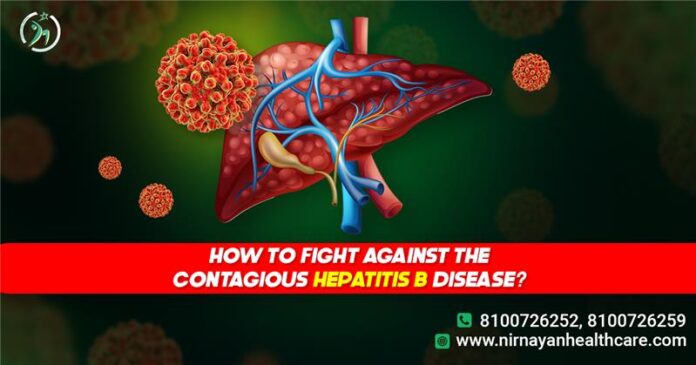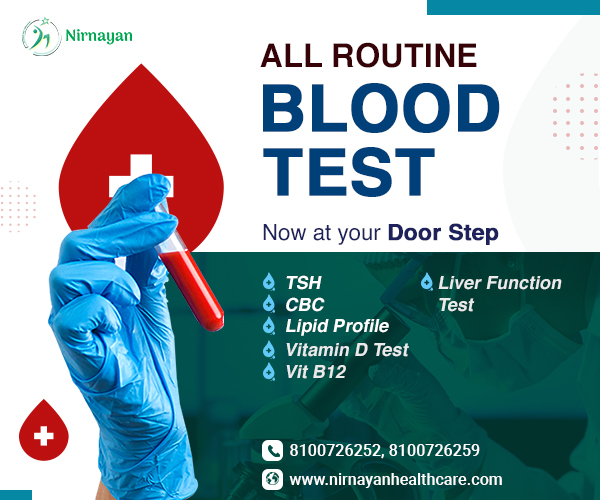Your liver health gets attacked with various diseases or groups of diseases, whether they may be from any viruses or any inflammations due to several exposures internally or by any external practices. Hepatitis B is a type of hepatitis disease that can occur in your liver with various consequences, if left untreated, that can be serious for your overall health. Caused by the Hepatitis B Virus (HBV), it primarily attacks the liver and can range from a mild, short-term illness to a serious, lifelong condition. Without timely management, chronic hepatitis B can lead to life-threatening complications such as liver cirrhosis, liver cancer, and liver failure.
What is Hepatitis B?
Hepatitis B is a viral infection of the liver caused by HBV. Its course depends on the duration of infection: Hepatitis B can be acute if it lasts within 6 months, and it can also be chronic if this illness lasts for a long time.
Hepatitis B can be contracted primarily through contact with contaminated blood or bodily fluids. It can also be transmitted sexually from an infected individual to their partner. However, it’s important to note that the virus does not spread through casual interactions like sneezing, coughing, sharing meals, or hugging someone who is infected.
- Acute Hepatitis B: Short-term hepatitis B infection, mostly reduced by its own.
- Chronic Hepatitis B: Chronic hepatitis B is a persistent liver infection that can cause severe health complications over time, such as liver failure and liver cancer.
Causes of hepatitis B:
Hepatitis B is a liver inflammation caused by the hepatitis B virus. HBV spreads through blood-to-blood or fluid-to-fluid contact, including:
- Unprotected sexual contact with an infected partner
- Exposure to infected blood (e.g., healthcare professionals, open wounds)
- Sharing needles, syringes, or medical equipment
- Mother-to-child transmission during childbirth
- Sharing personal items like razors or toothbrushes contaminated with infected blood
Symptoms of hepatitis B infections:
Do you know that some patients with hepatitis B may not exhibit any symptoms? The common symptoms are,
- Nausea & vomiting
- Abdominal pain
- Feeling sick or weak
- Fatigue
- Loss of appetite
- Urine colour change (dark urine)
- Pale stools
- Yellow eyes (jaundice)
- Joint pain
Medical conditions related to hepatitis B:
If anyone is having hepatitis B virus, he/ she should be concerned about their treatment to overcome it without wasting any time – it may bring other complications that can be serious and some of them can be life-threatening, such as,
Liver cancer (Hepatocellular Carcinoma): Chronic hepatitis B can cause liver cancer if it is left untreated or ignored. Your doctor may ask you to do blood tests and any other tests to diagnose your current liver health, along with USG, or City Scan.
Cirrhosis of the liver: Hepatitis B leads to inflammation of the liver, which, if left untreated, can result in serious scarring known as cirrhosis. In this condition, your liver tissue gets replaced with scar tissue, which reduces the liver’s normal functionality
Liver failure: If you don’t consult with your doctors for treating your hepatitis B infections, it may develop into chronic liver disease. Long-term HBV infection may cause liver failure, though it has two types like acute liver failure & chronic liver failure.
- Acute liver failure – a sudden and severe loss of liver function
- Chronic liver failure – progressive deterioration of liver function over years of chronic infection
Hepatitis D: It also happens with hepatitis B because of liver damage or liver failure.
Diagnosis of Hepatitis B:
To diagnose properly, a number of blood tests and routine monitoring may be suggested by your medical professionals. Depending on the severity of this HBV, this disease can be differentiated between acute and persistent infections.
Blood tests:
Through blood tests, your medical professionals can confirm your disease and recommend your proper medication for reducing its impact on your liver as well as your health. Blood tests can be done to check whether it’s an acute or chronic condition.
Treatment of Hepatitis B:
For acute hepatitis B, there is no such treatment procedure; you need to maintain hydration in your body by taking fluids and drinking enough water.
And for chronic hepatitis B, treatment requires regular health checkups, blood tests to check your liver function, and screening of your liver. Medications will be prescribed to reduce the level of the hepatitis B virus, and you need to take medications for several months and days as suggested by your doctors.
Preventing Hepatitis B
Protecting yourself from hepatitis B involves a combination of vaccination, safe practices, and awareness. Key preventive measures include:
- Vaccination
The hepatitis B vaccine is the most effective way to prevent infection. First step, vaccination, which is currently available at every age, reduces the risks and protects you from hepatitis B. You can get your vaccination on the tenure of every six months. - Practice Safe Sex
Always use protection (condoms) during sexual activity. Since hepatitis B can be transmitted through sexual contact, safe practices significantly reduce the risk. - Avoid Sharing Personal Items
Objects such as razors, toothbrushes, or nail clippers may contain traces of infected blood. Sharing them increases the risk of transmission, so keep personal hygiene items separate. - Use Needles Safely
Never share needles, syringes, or any injectable equipment. If you use injectable drugs or require frequent medical injections, ensure all equipment is sterile and used only once. - Screening – Pregnant women should be tested to prevent mother-to-child transmission.
When to seek medical attention:
If you know that you have been exposed to the hepatitis B virus, don’t delay, discuss with your medical professionals and do your blood tests for further checkups. Treatment of hepatitis B must not be delayed, as it can turn into a serious, life-threatening condition later.
Living with Chronic Hepatitis B
If you are diagnosed with chronic hepatitis B, long-term care and regular monitoring are essential. Staying connected with your doctor and making lifestyle adjustments can help reduce complications and protect your liver health.
- Maintain a Nutritious Diet:
Include foods rich in proteins, vitamins, and minerals to support liver function and strengthen immunity. A balanced diet aids faster recovery and helps the body cope with infection. - Quit Alcohol & Smoking:
Alcohol and tobacco significantly increase liver damage and disease progression. Avoiding these substances is one of the most important steps in protecting your liver. - Regular Monitoring & Testing:
Routine blood tests and liver screening are crucial to track your hepatitis B status at Nirnayan Healthcare, the best pathology lab in Kolkata. We ensure accurate and detailed test insights here. - Protect Against Other Infections:
- Get vaccinated against hepatitis A, as co-infection can worsen liver disease.
- Get tested for hepatitis C—if detected, treatment is available and effective.
- Don’t share personal items to maintain overall hygiene and avoid unnecessary exposure to infections that may strain your liver
Emotional & Social Support
Living with a chronic condition can sometimes feel overwhelming. Managing stress, staying positive, and seeking support from family, friends, or patient groups can make a significant difference. Emotional well-being is just as important as physical health in managing hepatitis B.
A Note from Nirnayan:
You have to be more concerned about detecting hepatitis B infections if you have seen any symptoms in yourself for a long time. Suppose it is ignored or untreated within the right time. In that case, chronic hepatitis B can sometimes be life-threatening or cause serious diseases, like Liver failure, liver cancer, or liver cirrhosis. Secure your liver as well as your overall health with us and get tested for your disease within the proper time.




